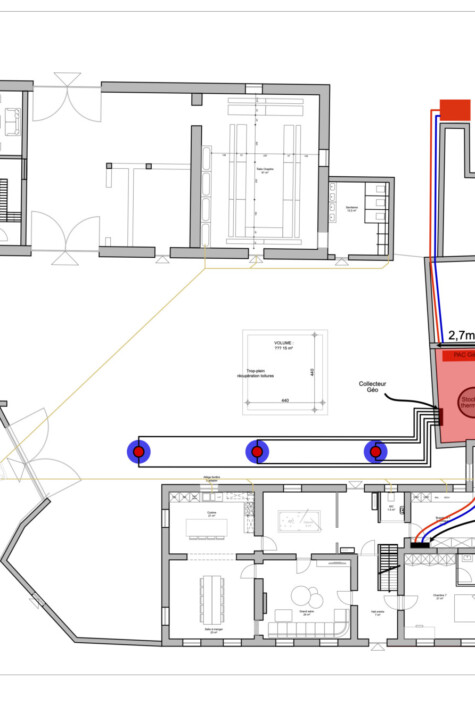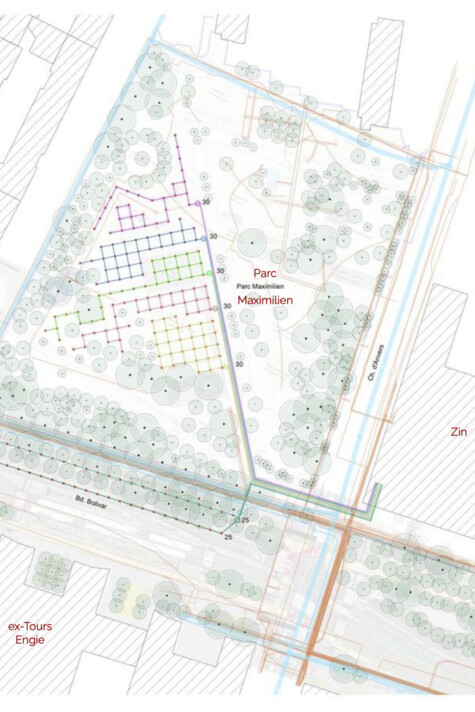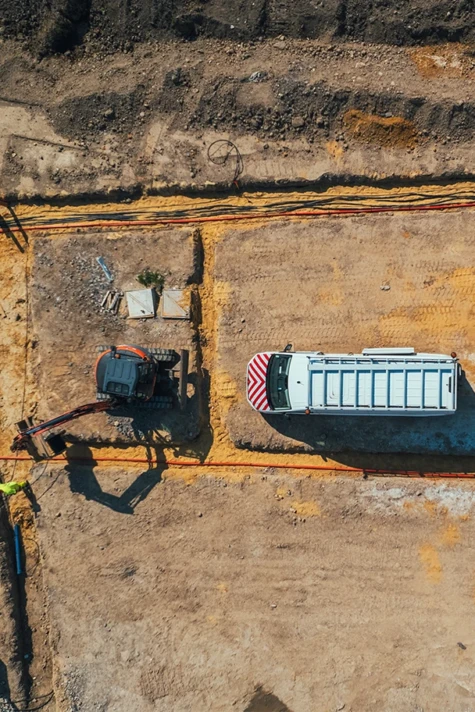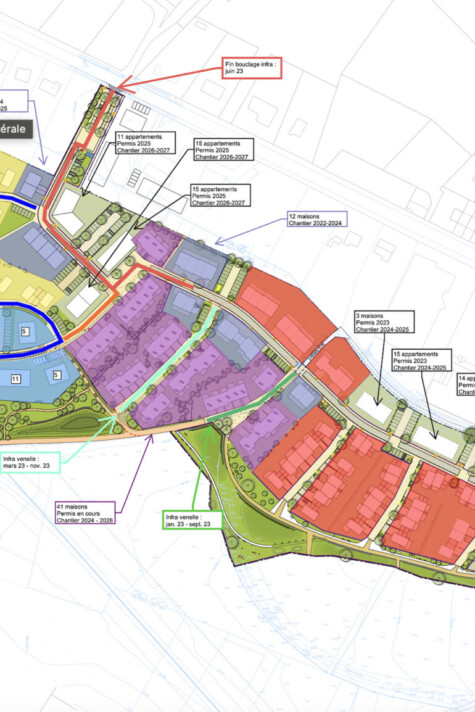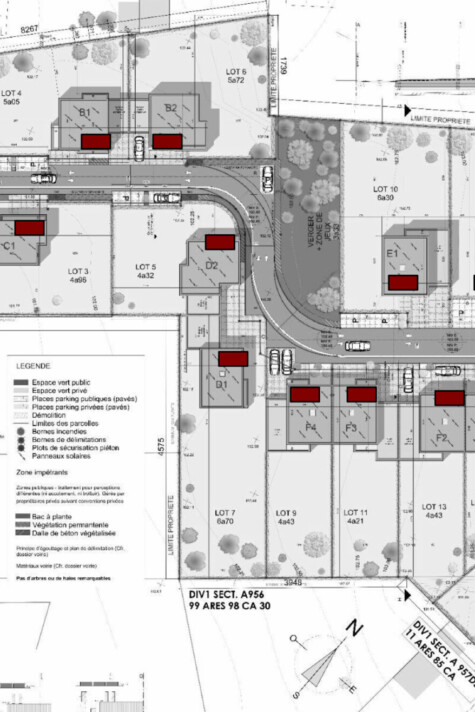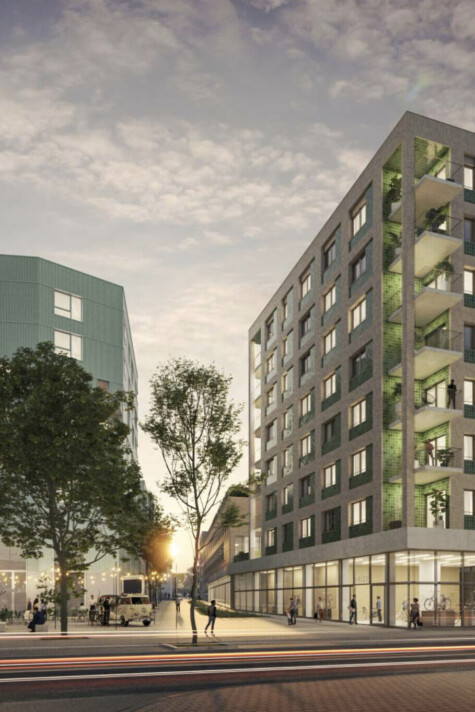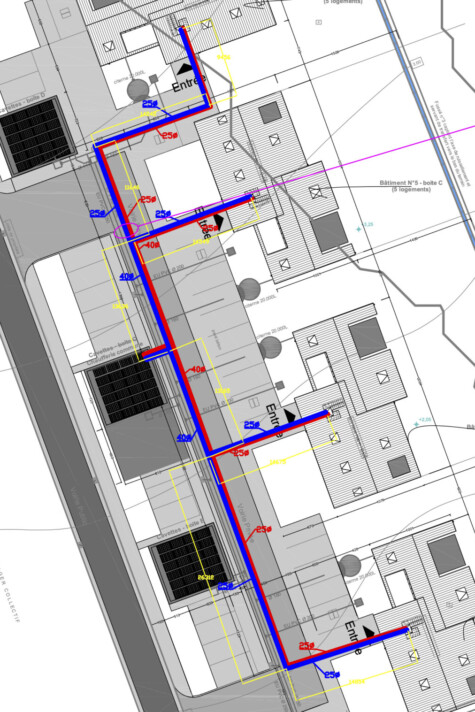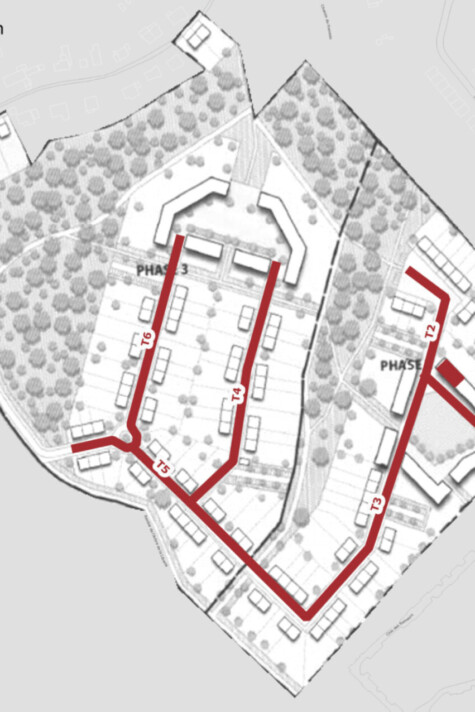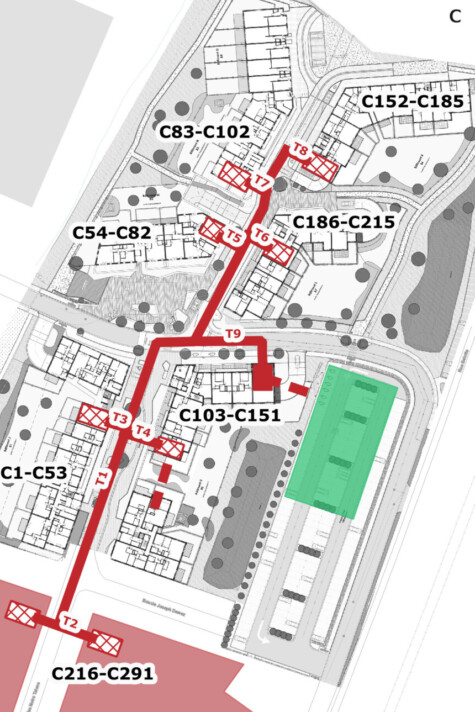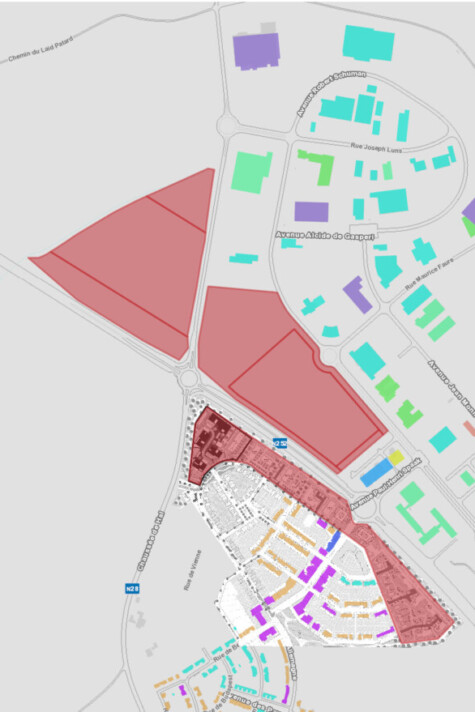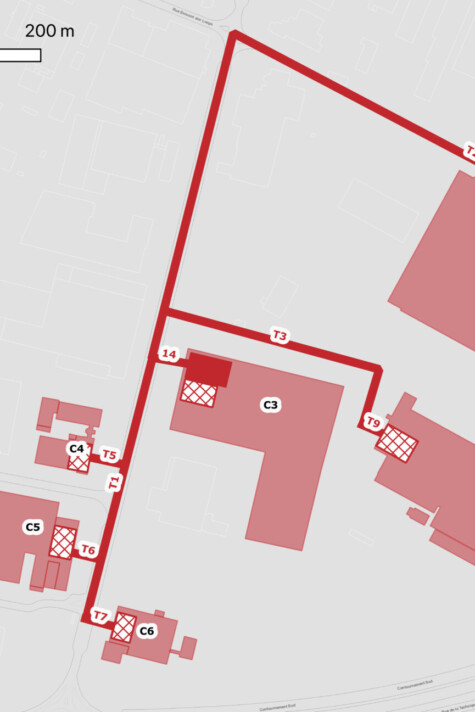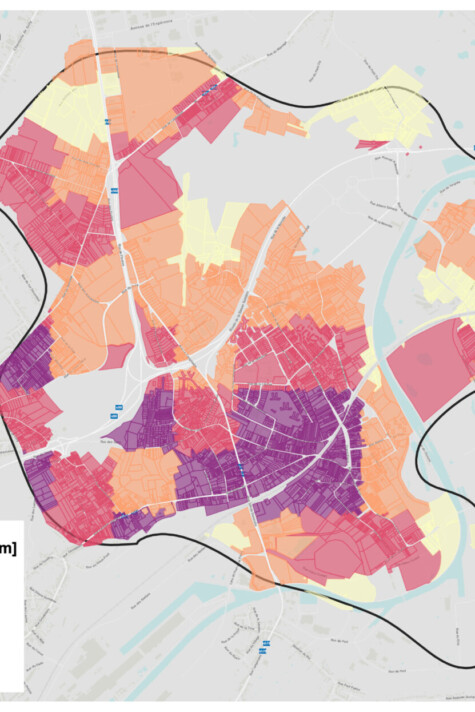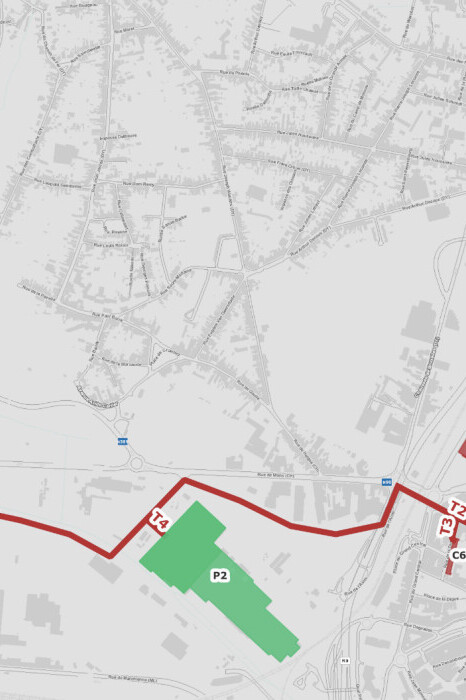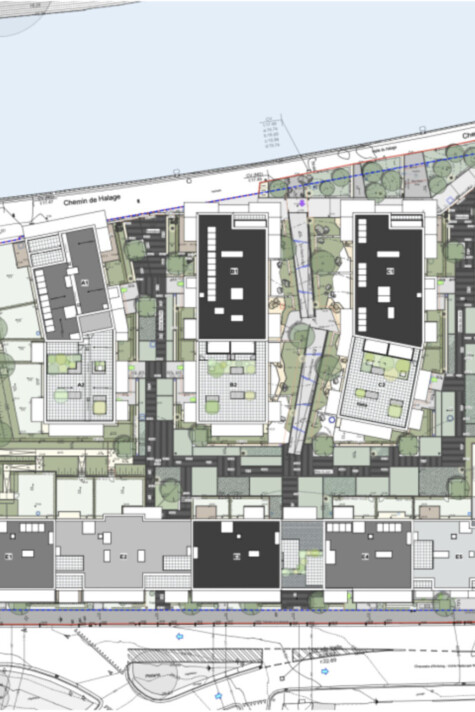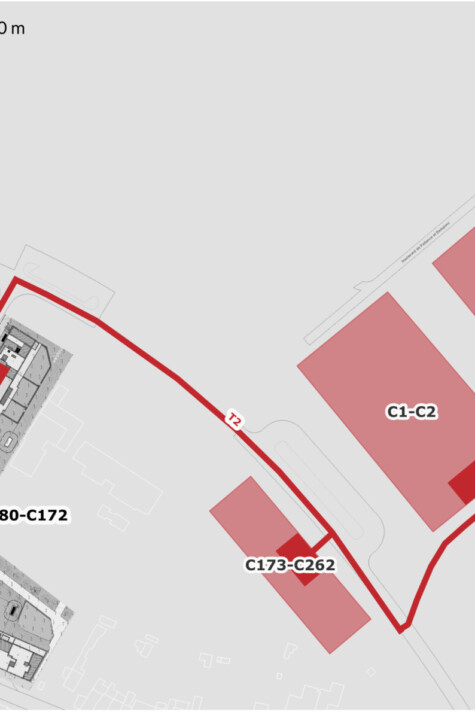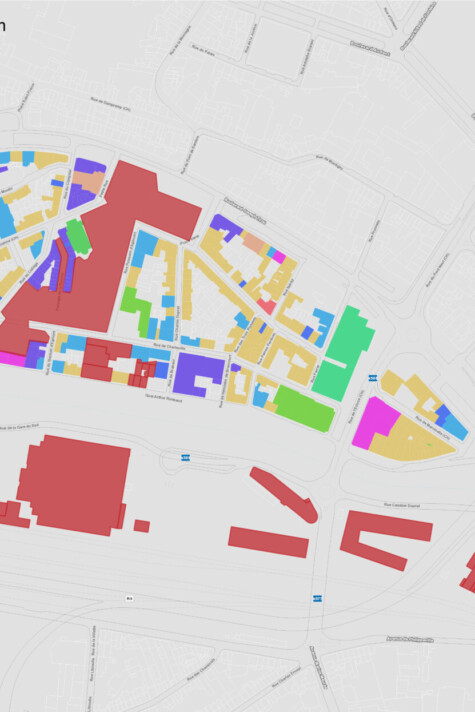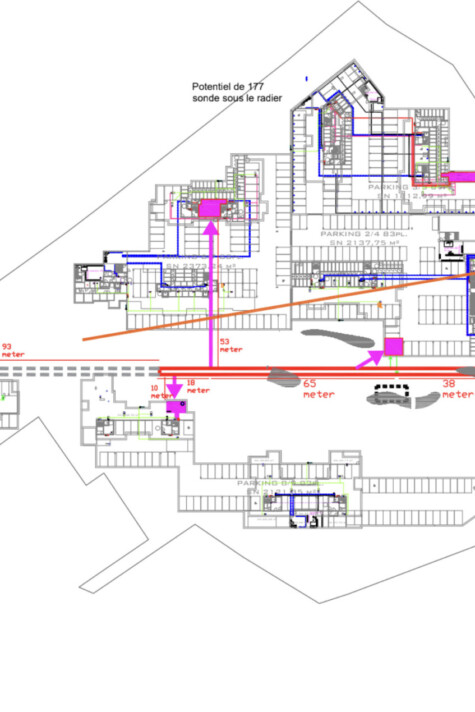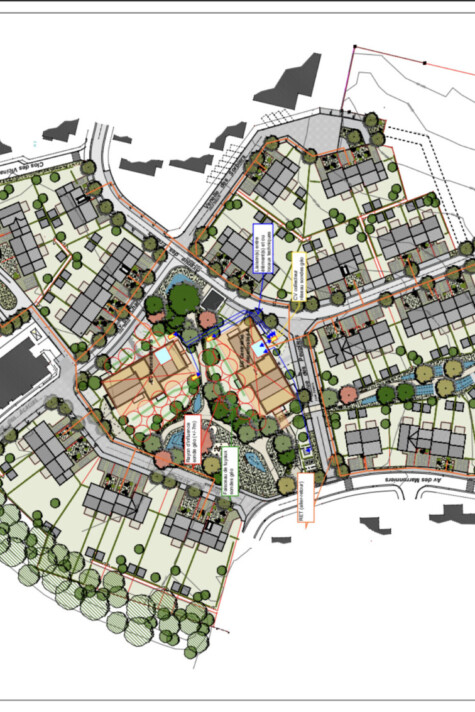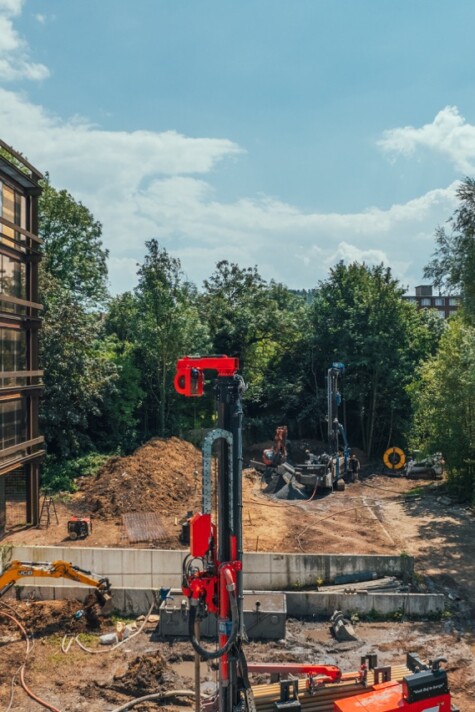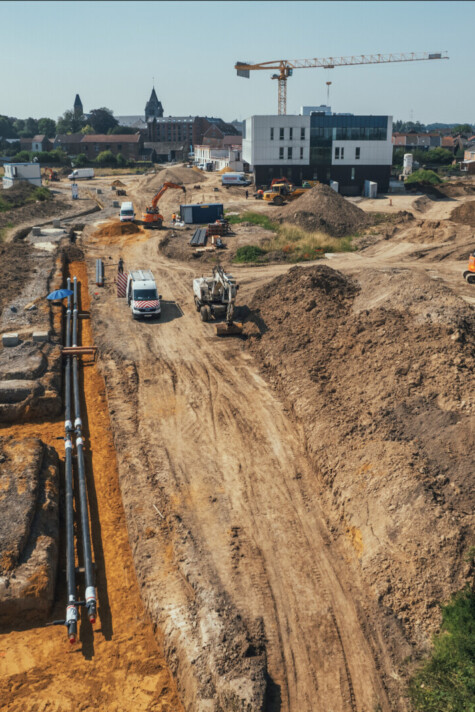Development of an Urban Heating Network
Rue François Givron, 6210 Frasnes-Lez-Gosselies
Market sector
Private
Number of housing units and buildings
10 housing units
Area (m²)
925
Heat source type
Closed-loop geothermal
Project number
K-0013
Location
Frasnes-lez-Gosselies
Contract type
DB
Consumption
(heating/cooling)
460 MWh
Client
Lime construction SRL
Use
Residential
Works start/end date
Amount excl. VAT
(entire project)
€158k
Renewable Energy for Housing
A Heat Network to Sustainably Supply the Housing Units of Frasnes-lez-Gosselies.
Project Objectives
The “Frasnes-les-Gosselies” Project aims for a new residential building construction of 10 apartments. The client wishes to implement an exemplary residential building from an energy and ecological perspective. They thus want the future occupants of the 10 apartments in the Project to have a renewable thermal energy supply to meet their heating needs.
Harnessing Geothermal Energy
Geothermal energy is a renewable energy source that relies on harnessing the heat naturally present in the subsoil.
Within heat networks, geothermal energy allows for capturing this heat via shallow or deep boreholes, and then distributing it through a hydraulic network. This technology offers the advantage of being locally available, stable year-round, and a low emitter of greenhouse gases. By leveraging this sustainable resource, it is possible to significantly reduce dependence on fossil fuels, while ensuring a continuous and controlled energy supply.
The integration of geothermal energy into heat networks is therefore an important strategy for energy transition and carbon footprint reduction.
Project Impact
Energy Saved
476 MWh
Green heat produced over 1 year
CO2 Reduction
1,819.86 T
CO2 avoided over 20 years
Reduced Costs
100%
Decarbonized heat
Benefits for the Community
The development of the urban heat network in Frasnes-lez-Gosselies offers concrete benefits for the community by providing a green and economical heat source. By using renewable energy from geothermal sources, this project reduces costs for residents and decreases the local carbon footprint, while contributing to a healthier and more sustainable environment.

